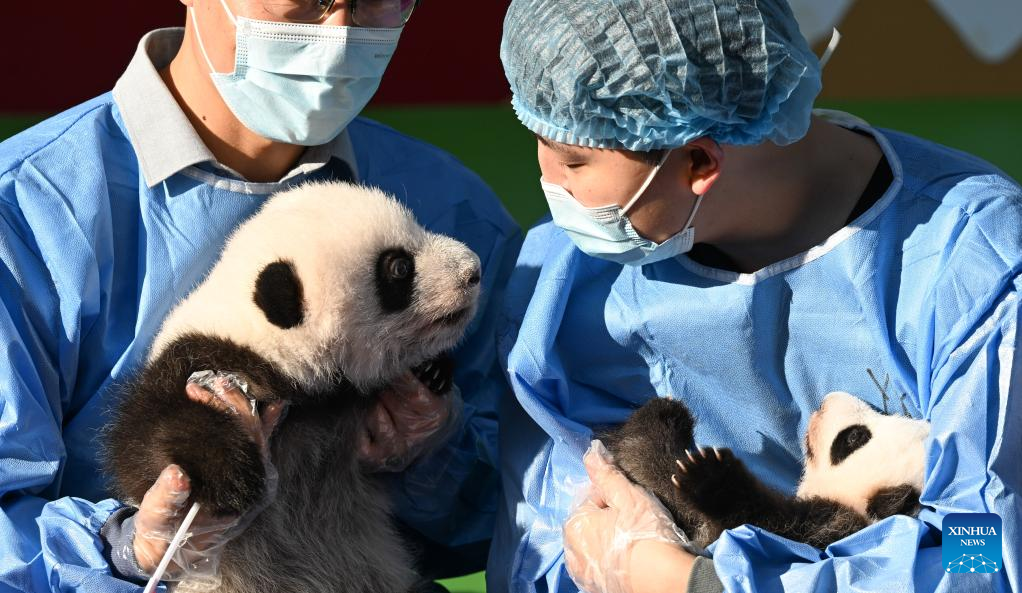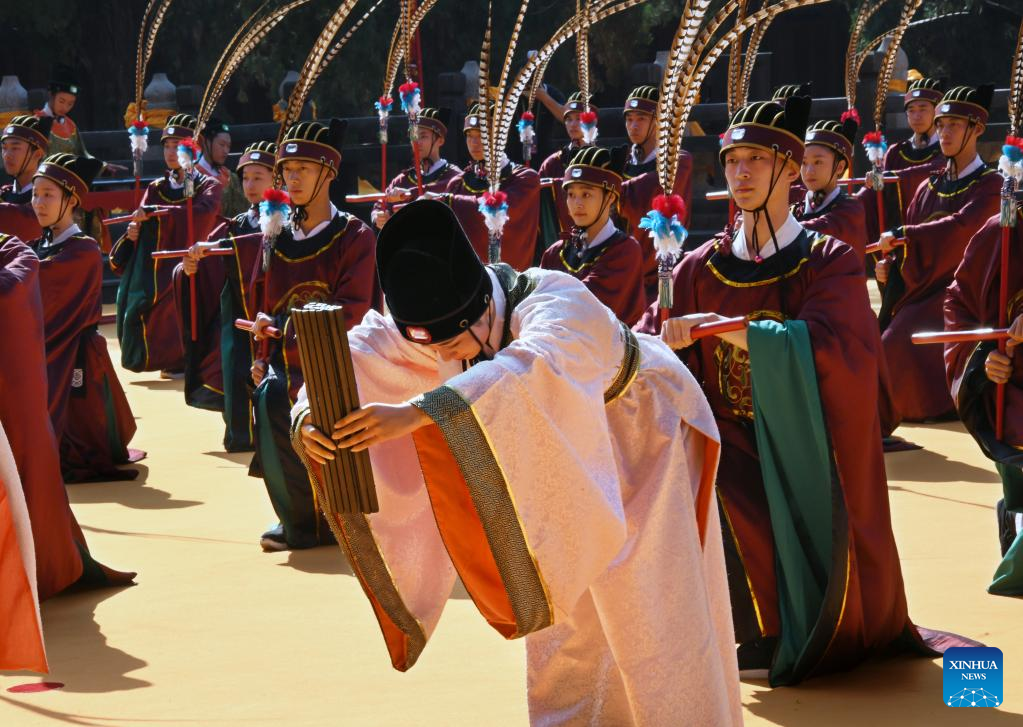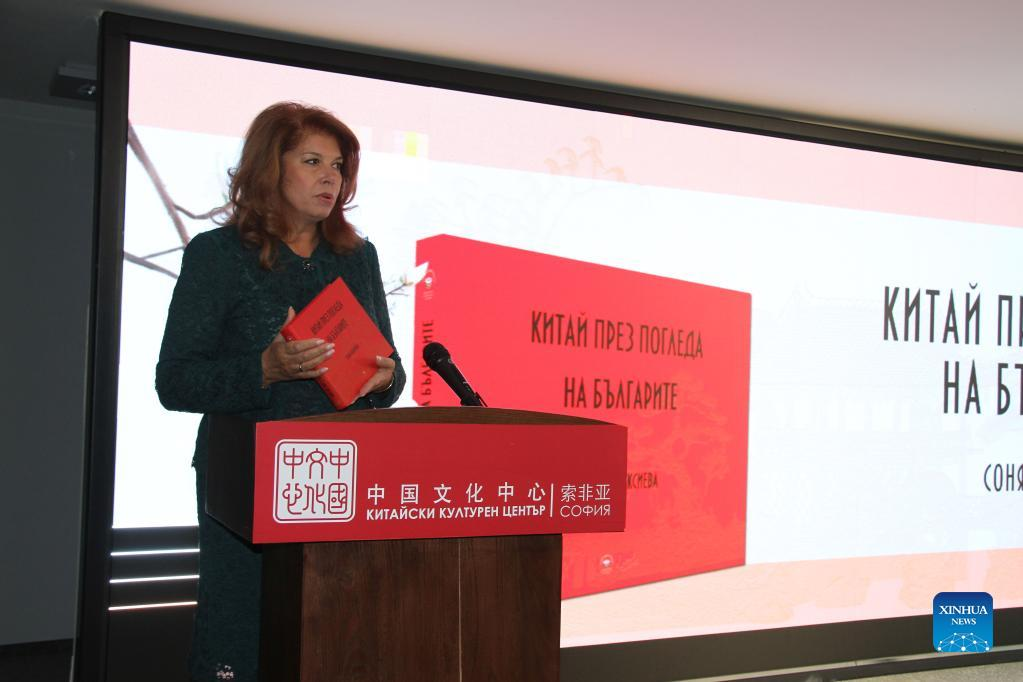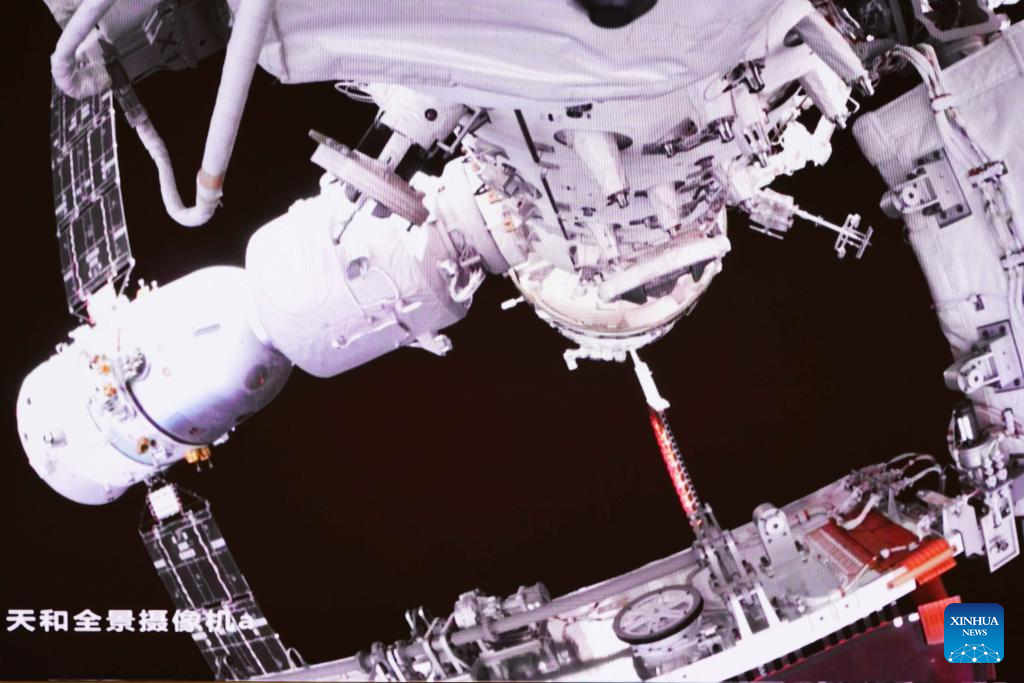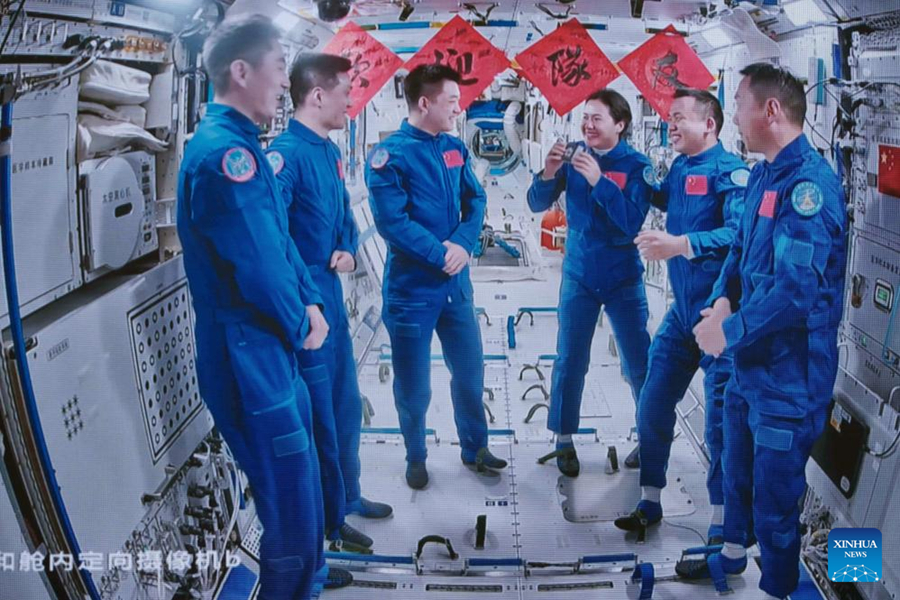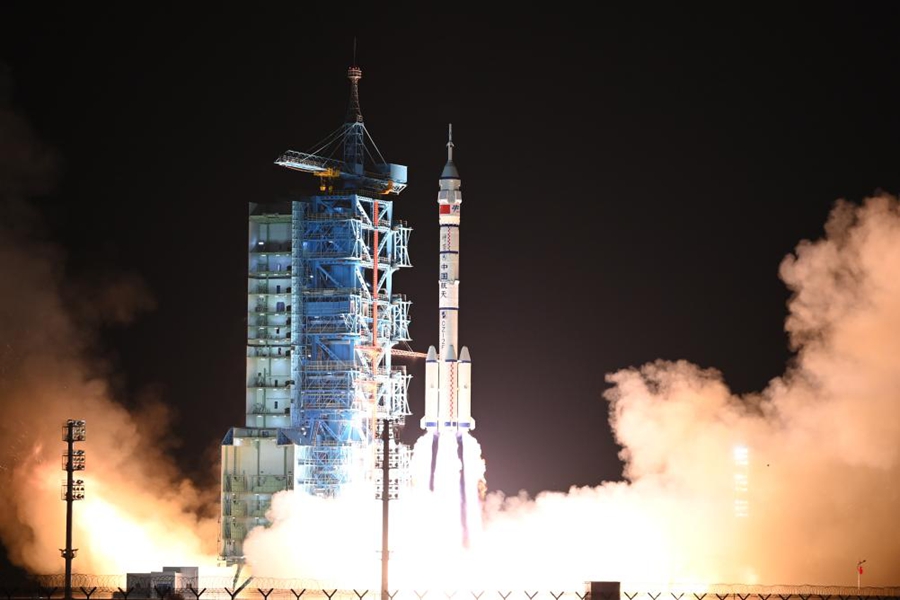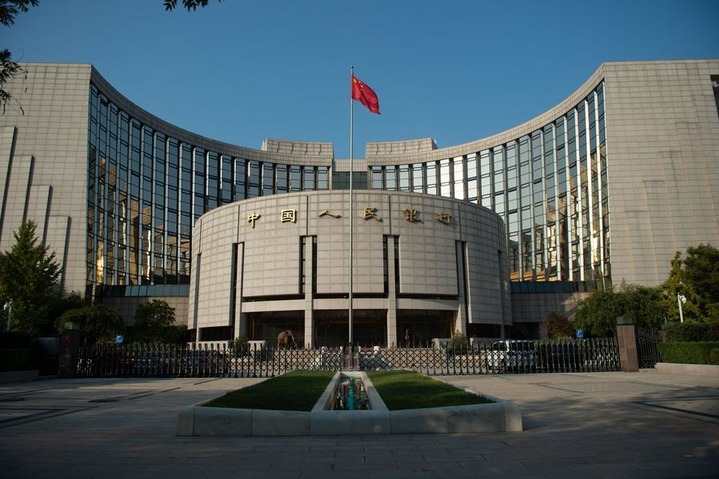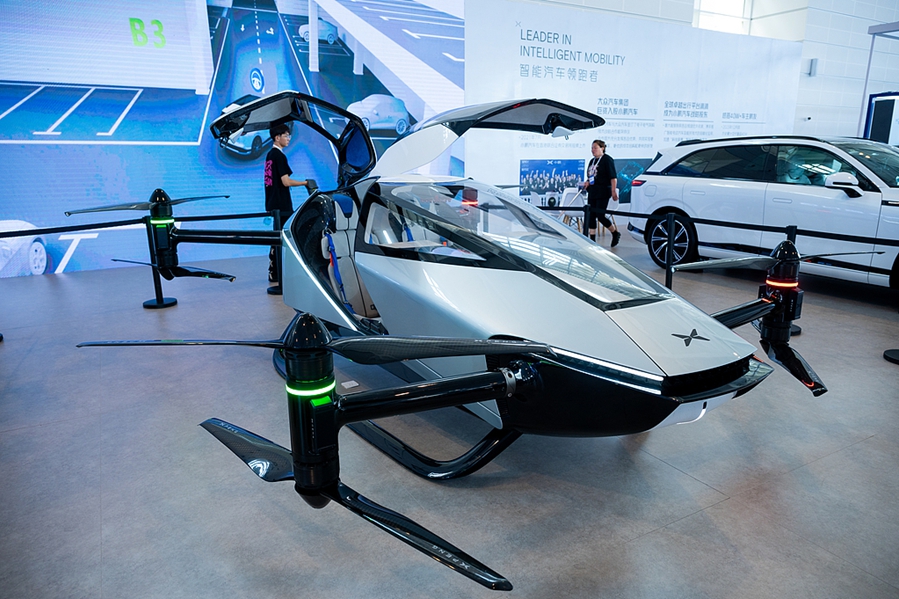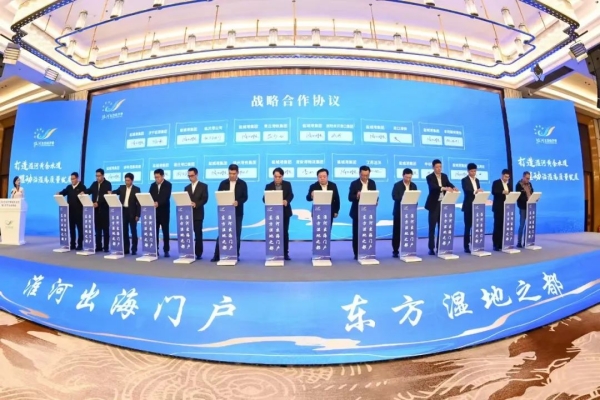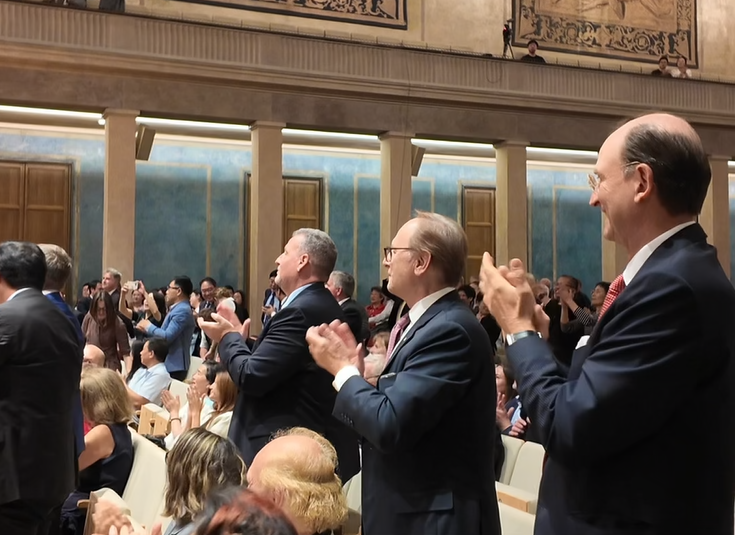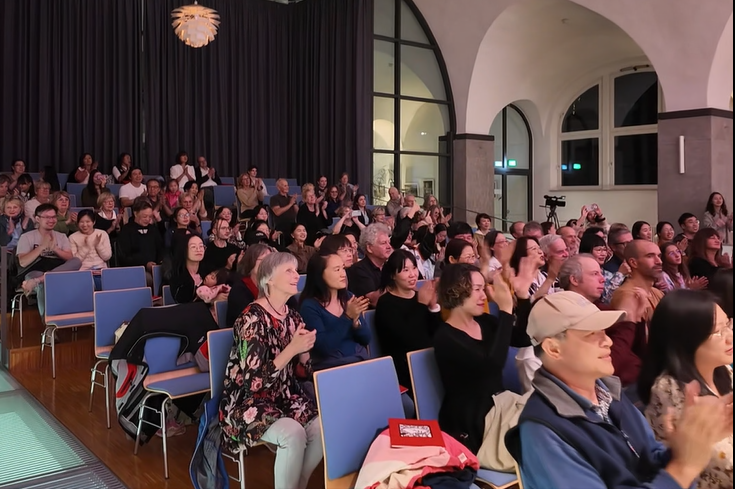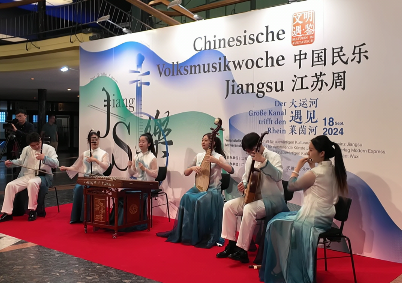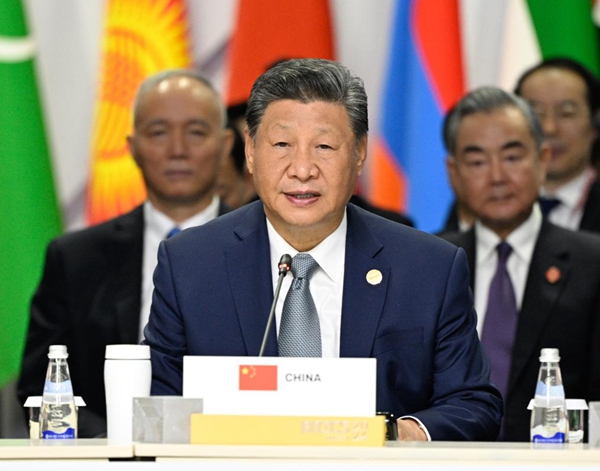
Chinese President Xi Jinping delivers an important speech titled "Combining the Great Strength of the Global South To Build Together a Community with a Shared Future for Mankind" at the "BRICS Plus" leaders' dialogue in Kazan, Russia, Oct. 24, 2024. (Xinhua/Li Xueren)
KAZAN, Russia, Oct. 24 (Xinhua) -- As BRICS leaders gathered with non-member countries seeking closer ties with the group on Thursday, Chinese President Xi Jinping voiced strong support for Global South countries.
Participating in the "BRICS Plus" leaders' dialogue during the final day of the Kazan summit, Xi said "the collective rise of the Global South is a distinctive feature of the great transformation across the world."
"We support more Global South countries in joining the cause of BRICS as full members, partner countries or in the 'BRICS Plus' format so that we can combine the great strength of the Global South to build together a community with a shared future for mankind," Xi said.
No matter how the international landscape evolves, said the Chinese president, "we in China will always keep the Global South in our heart, and maintain our roots in the Global South."
Leaders from Asia, Africa, the Middle East, and Latin America, as well as representatives of several international organizations, attended the meeting, including UN Secretary-General Antonio Guterres.
The 16th BRICS Summit's agenda covered a range of pressing issues, including world peace and stability, reform of global governance, sustainable development, poverty eradication, climate change, and the fight against terrorism and transnational crimes.
Russian President Vladimir Putin, chairing the summit, said it is crucial for BRICS members to discuss all these issues with countries from the Global South.
"All our countries share similar aspirations, values and a vision of a new democratic world order that reflects cultural and civilizational diversity," Putin said.
The Kazan summit marked the first in-person gathering of leaders of BRICS after the group's membership expansion last year. On Wednesday, the BRICS leaders adopted the Kazan summit declaration, which summarized the summit's outcome.
According to the declaration, BRICS countries agreed to jointly build the New Development Bank into a new type of multilateral development bank, support its further expansion of membership, and expedite the review of membership applications from BRICS countries in accordance with its general strategy and related policies.
The BRICS countries are also encouraged to strengthen financial cooperation and promote local currency settlement, it said.
Leaders of non-member countries expressed their expectation for BRICS' future development. The BRICS mechanism has great potential for development, as well as experience in building the future based on respect and partnership, Kazakh President Kassym-Jomart Tokayev said at Thursday's meeting.
Lao President Thongloun Sisoulith also said BRICS currently plays a key role in changing the world order.
The world economy is set to rely even more heavily on the BRICS group of emerging economies to drive expansion, according to latest forecasts of the International Monetary Fund (IMF). Compared with its last round of predictions six months ago, the IMF now expects a bigger share of growth over the next five years to come from powerhouse BRICS economies.
"The BRICS has played an extremely important role in advancing multilateralism," said B.R. DEEPAK, professor of Center for Chinese and South East Asian Studies of Jawaharlal Nehru University in India.
The inclusion of more countries in BRICS cooperation shows "the kind of appeal it has, especially in the Global South, who wants to make best of what BRICS has created," he said.

